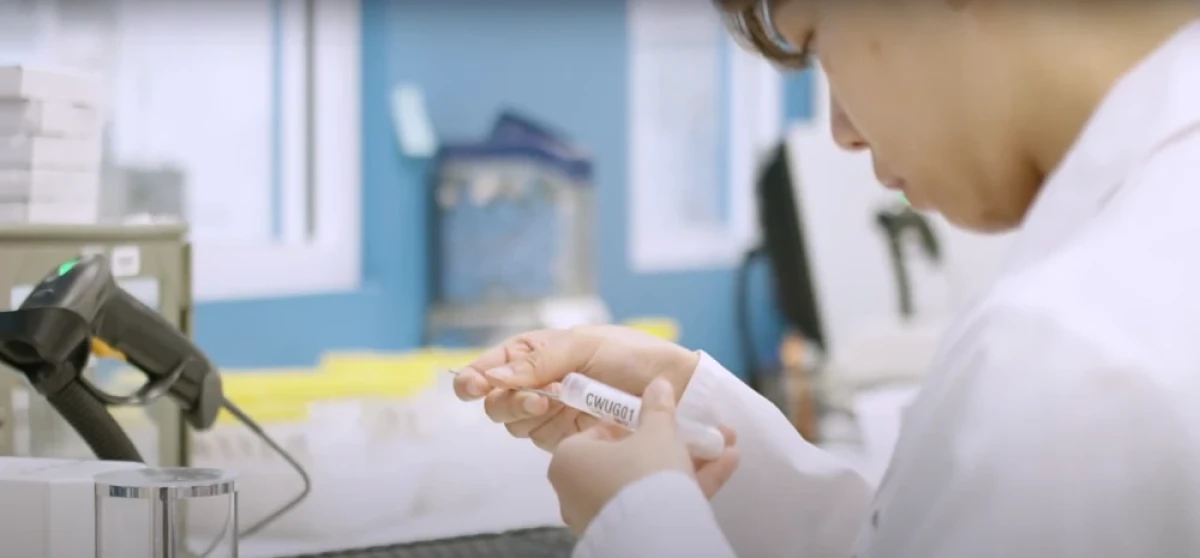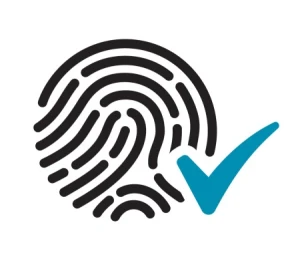What Is Scientific Traceability & Why Is It Important for Brands & Retailers?
By Oritain Team | 29 November 2023
minutes to read.

Traditionally, paper-based systems have been the go-to method for tracking product information and movement. However, with supply chains becoming more complex with globalization and increasing pressure for risk management and regulatory compliance, these methods are no longer practical or efficient.
For instance, laws like the Uyghur Forced Labor Prevention Act (UFLPA), Supply Chain Transparency Act, and the UK and Australian Modern Slavery Act have highlighted the need for companies to closely monitor human rights compliance throughout their supply chain. This level of monitoring and accountability is nearly impossible to achieve with a paper-based system.
Moreover, human error can lead to inefficiencies and inaccuracies in product information when manually entering data. These inefficiencies mean that tracing raw materials without the right technology can be a time-consuming and resource-intensive process. In the event of shipment detentions, brands and retailers may face huge losses due to lack of reliable traceability information.
Technology has opened doors to new possibilities for supply chain traceability. From blockchain to IoT sensors, these digital traceability systems have made it easier for companies to track and monitor their products as they move through the supply chain. However, a limitation of these supply chain technologies is that they provide traceability by proxy through the tracking of data or documentation, rather than tracking the product itself – leading to potential inaccuracies and gaps in tracing the raw materials. A new technology, scientific traceability, is emerging as a promising solution to these problems.
What is scientific traceability?
Scientific traceability refers to the ability to derive inherent traceability from a product using scientific methods of analysis and interpretation. This technology, pioneered by Oritain, verifies product sourcing through “origin fingerprints” derived from the chemical compositions of plants and animals. These unique compounds are influenced by environmental factors such as soil composition, precipitation, temperature, and altitude in specific locations.
To establish a scientific “signature” for each product, forensic science techniques are used to measure the range and ratios of these origin-related factors through trace element and stable isotope analyses. Multivariate statistics are then used to develop these chemical signatures into “fingerprints” that can be used to uniquely characterize an origin and distinguish between different origins. These fingerprints can then be used by brands and retailers to ensure the authenticity and transparency of the products themselves within their supply chains, building trust with consumers in today's market.
Why is scientific traceability important for apparel companies?
Cotton is one of the most widely used raw materials in the apparel industry, with global cotton production expected to rise by 3% to 25.41m tonnes for the 2023/24 season. But this natural fiber comes with its own set of challenges – the potential for fraud and counterfeiting, the use of forced labor in its production, and environmental concerns such as water and pesticide.
Cotton harvested from various farms is often blended and sold together – making it extremely difficult for brands to trace it to the exact farm it came from. With every step in the supply chain happening in a different country, it is not uncommon for this complex raw material to be mislabeled or even substituted with a lower quality or cheaper alternative.
Traditional traceability methods don’t go deep enough to address these issues, as they can only track the supply chain up to ginning or spinning mills, leaving the source of cotton unknown. Read more on the limitations of traditional traceability here: traditional traceability vs scientific traceability.
This is where scientific traceability comes in, providing a solution that goes beyond surface-level information to provide brands and retailers with the evidence-based data they need to make responsible and ethical sourcing decisions.
Some of the key challenges with other traceability methods include:
- Risk mitigation: Risks are often buried deep within the supply chain and can remain unknown until a problem arises. Unchecked/ungoverned sources of cotton can lead to investigations, product import bans, and reputational damage.
- Supplier claims: Relying solely on supplier claims alone can be risky, as they may not always align with the truth. Certificates and documentation can be falsified, making it difficult to trace the true origin of cotton.
- Brand reputation: When risks go unaddressed, it can directly impact a company's brand reputation. Consumers are increasingly demanding transparency and ethical sourcing practices from companies they purchase from. Without proper traceability measures in place, companies risk being viewed as non-compliant and unethical.
- Financial ramifications: Non-compliance with laws and regulations can lead to serious financial consequences for apparel companies. If cotton is identified as coming from high-risk regions, shipments can be detained at the border or refused entry into certain countries (U.S. under UFLPA law), resulting in expensive fines and loss of market access.
How can scientific traceability help?
Scientific traceability, based on inherent product traceability, empowers apparel companies to proactively address the above listed issues and mitigate potential risks. It provides a completely unique approach to checking and mitigating risk in supply chains compared to other technology approaches. It can verify and elevate existing systems like supply chain mapping softwares or Blockchain, which are still reliant on input of information.
- Tier 4 and beyond visibility: Scientific traceability goes beyond the supplier level and provides visibility all the way into the farm and field where the cotton was grown. Testing and tracing the origin of cotton allows apparel companies to know where their cotton comes from and, most importantly, where it doesn't come from - high-risk regions or sources.
- Proactive risk management: By taking a proactive rather than reactive approach, apparel companies can identify and address potential risks in their supply chain before they become major issues. This not only protects against financial consequences but also helps maintain a positive brand reputation.
- Authenticity verification: Scientific testing allows for the authentication of cotton origins, providing evidence to support claims made by suppliers. This helps companies avoid relying solely on supplier claims and potentially putting their brand reputation at risk.
- Compliance with global regulations: Scientific evidence can be used as proof of compliance with laws and regulations, providing a safeguard against potential financial ramifications. When faced with challenges from regulatory bodies, companies can use scientific testing to support their position and demonstrate due diligence.
- Reputation management: Detentions, fines, and other consequences of non-compliance can have a significant impact on a company's reputation. Scientific traceability helps to avoid these issues and maintain a positive image, showcasing a commitment to ethical sourcing and responsible business practices.
A good traceability solution provides not only transparency but also incontrovertible proof of compliance that stands up to scrutiny. If your company has bigger ESG goals, you may need to consider one that is easy to integrate without disrupting production and which scales with your business growth.
To learn more about traceability and how we help textile companies prove their product origin, visit our Cotton & Fashion page or contact us.
Disclaimer: The information provided in this document does not and is not intended to constitute legal advice. Instead, all information presented here is for general informational purposes only. Counsel should be consulted with respect to any particular legal situation.
